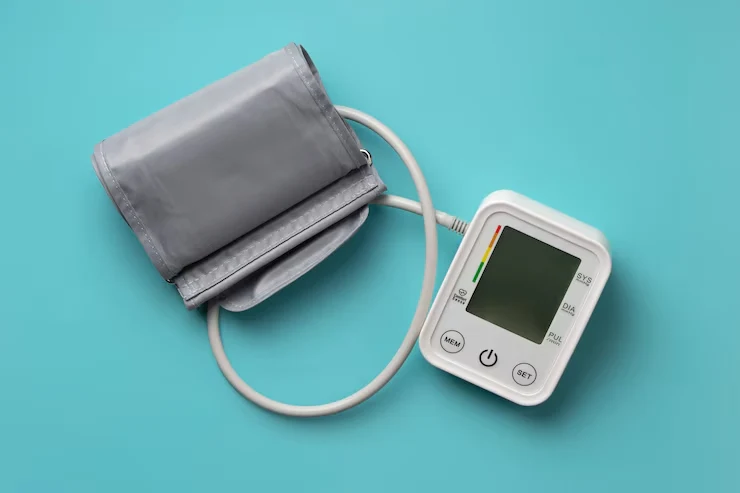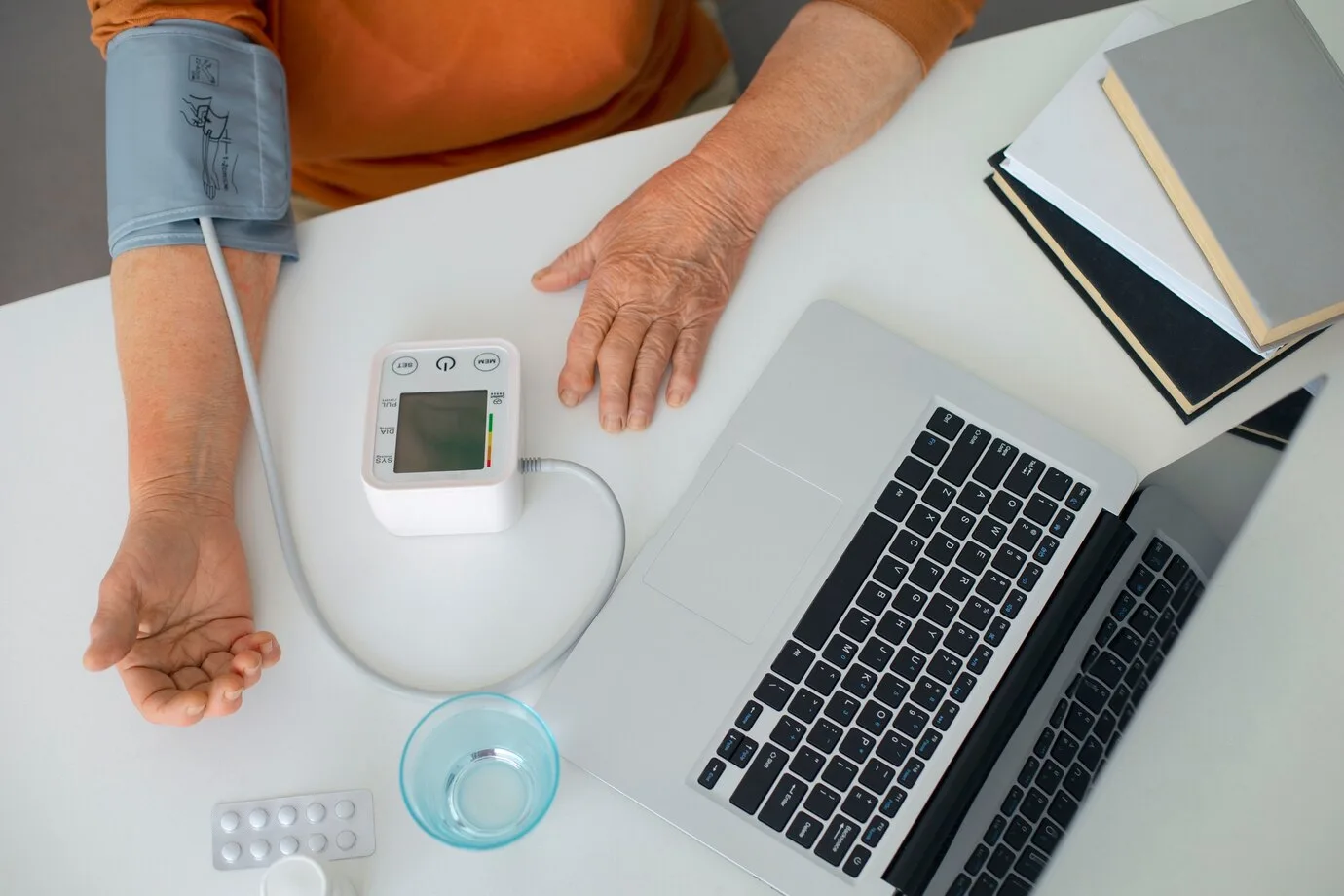How To Reduce High Blood Pressure?
Category: Cardiology
High blood pressure, or hypertension, is a common but serious health condition affecting millions worldwide. It occurs when the force of blood against artery walls is consistently too high, which can lead to heart disease, stroke, kidney problems, and other complications. Managing and reducing high blood pressure is crucial to maintaining overall health and preventing life-threatening issues.
At Lokmanya Hospitals, one of premier healthcare institutions in Pune, we specialize in diagnosing and managing hypertension through a combination of advanced medical care and lifestyle interventions. Our expert cardiologists and healthcare professionals use evidence-based approaches tailored to individual needs, ensuring you get the best treatment and guidance for controlling blood pressure effectively.
What Is High Blood Pressure?
Blood pressure measures the force exerted by circulating blood on the walls of blood vessels. It is recorded as two numbers: systolic pressure (pressure when the heart beats) over diastolic pressure (pressure when the heart rests between beats). A normal blood pressure reading is typically around 120/80 mm Hg.
Hypertension is diagnosed when readings consistently exceed 130/80 mm Hg. It is often called a “silent killer” because many people experience no symptoms until serious damage has occurred. Hence, regular monitoring and proactive management are essential.
Causes and Risk Factors of High Blood Pressure
Understanding what causes or contributes to high blood pressure helps in effective management. Key factors include:
- Unhealthy Diet: High salt intake, excessive processed foods, and high saturated fats raise blood pressure.
- Lack of Physical Activity: Sedentary lifestyles weaken heart health and increase hypertension risk.
- Excess Weight: Obesity strains the heart and blood vessels.
- Stress: Chronic stress can elevate blood pressure temporarily and chronically.
- Smoking and Alcohol: Both increase blood pressure and damage blood vessels.
- Age and Genetics: Risk increases with age and family history.
- Other Medical Conditions: Diabetes, kidney disease, and sleep apnea often coincide with hypertension.
How To Reduce High Blood Pressure
Effectively lowering blood pressure usually involves a combination of lifestyle changes and, when necessary, medication. Here’s a detailed guide:
1. Adopt a Heart-Healthy Diet
Diet plays a pivotal role in managing blood pressure. The DASH diet (Dietary Approaches to Stop Hypertension) is often recommended and emphasizes:
- Increasing fruits, vegetables, whole grains, and low-fat dairy.
- Reducing saturated fats, cholesterol, and trans fats.
- Limiting sodium intake to less than 2,300 mg per day (ideally 1,500 mg for hypertensive individuals).
- Incorporating potassium-rich foods like bananas, spinach, and sweet potatoes, which help balance sodium levels and relax blood vessels.
Avoid processed foods, canned soups, and salty snacks to minimize sodium consumption.
2. Maintain a Healthy Weight
Excess weight forces your heart to work harder, increasing blood pressure. Losing even a small amount—5-10% of body weight—can significantly reduce blood pressure levels. Combining calorie control with physical activity is the best approach.
3. Exercise Regularly
Aim for at least 150 minutes of moderate-intensity aerobic exercise per week, such as brisk walking, cycling, or swimming. Exercise strengthens the heart, improves blood flow, and helps maintain a healthy weight. Consistency is key to sustained blood pressure reduction.
4. Limit Alcohol and Avoid Tobacco
Excessive alcohol intake raises blood pressure. Men should limit themselves to two drinks per day, women to one. Smoking causes blood vessels to narrow and stiffen, leading to increased blood pressure. Quitting tobacco improves heart and overall health dramatically.
5. Manage Stress
Stress causes temporary blood pressure spikes and, if chronic, can contribute to long-term hypertension. Techniques to reduce stress include:
- Mindfulness and meditation
- Deep breathing exercises
- Yoga or gentle stretching
- Engaging in hobbies and social activities
Consistent practice of stress-reduction techniques supports better blood pressure control.
6. Monitor Your Blood Pressure Regularly
Self-monitoring at home helps track progress and identify when adjustments to lifestyle or medication may be needed. Many pharmacies and clinics offer devices for easy home use.
7. Take Prescribed Medications as Directed
When lifestyle changes alone are insufficient, doctors may prescribe antihypertensive medications, such as ACE inhibitors, beta-blockers, diuretics, or calcium channel blockers. It’s essential to take medications as prescribed and report any side effects to your healthcare provider.
8. Get Adequate Sleep
Poor sleep quality or sleep disorders like sleep apnea can increase blood pressure. Aim for 7-8 hours of restful sleep per night. If you experience snoring, daytime fatigue, or breathing pauses during sleep, consult your doctor.
Why Choose Lokmanya Hospitals for Managing High Blood Pressure?
At Lokmanya Hospitals, we offer comprehensive, patient-focused care for hypertension and its complications. Our expert cardiology team utilizes the latest diagnostic tools and treatment protocols to create individualized care plans. Whether you require lifestyle counseling, medication management, or advanced cardiovascular care, we provide seamless support every step of the way.
Our multidisciplinary approach integrates nutritionists, physiotherapists, and mental health professionals, ensuring holistic treatment. With a strong focus on education and patient empowerment, Lokmanya Hospitals helps you take control of your blood pressure and live a healthier, longer life.
Additional Tips for Long-Term Blood Pressure Control
- Stay Hydrated: Drinking enough water helps maintain optimal blood viscosity and circulation.
- Limit Caffeine: High caffeine intake can cause temporary spikes in blood pressure.
- Regular Health Check-ups: Routine screenings can detect hypertension early.
- Follow a Medication Schedule: Use reminders or pillboxes to avoid missed doses.
- Educate Yourself: Understand your condition and stay motivated to adhere to lifestyle changes.
Conclusion
Reducing and managing high blood pressure is vital to prevent heart disease, stroke, and other serious health issues. Through a combination of healthy eating, regular exercise, stress management, and proper medical care, you can achieve effective blood pressure control.
At Lokmanya Hospitals, we provide expert guidance and state-of-the-art treatment options tailored to your unique health needs. If you have high blood pressure or are at risk, consult with our specialists to begin your journey toward a healthier heart and a better quality of life.
Previous blog







